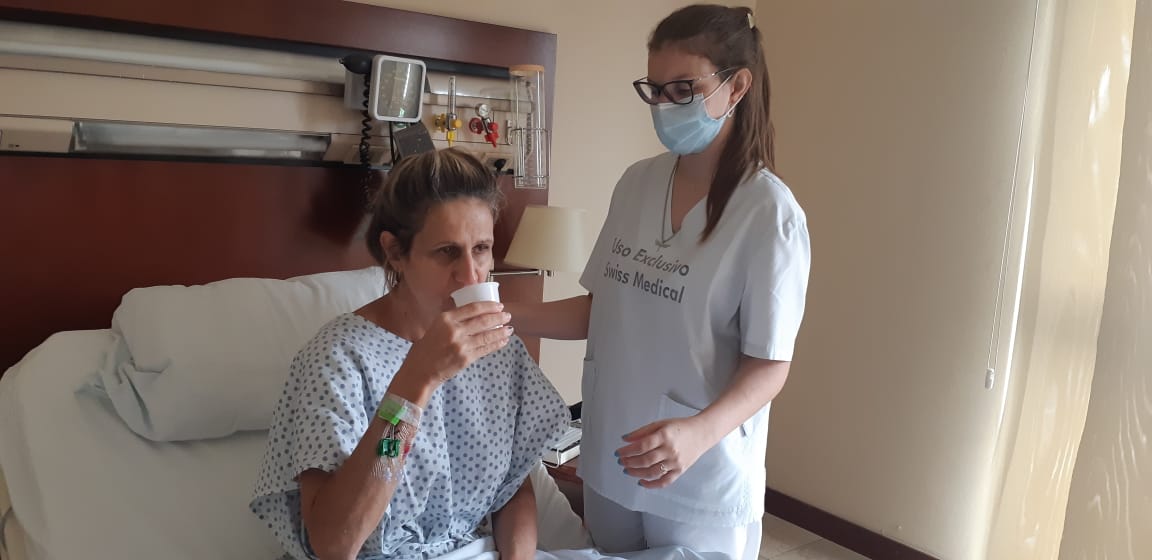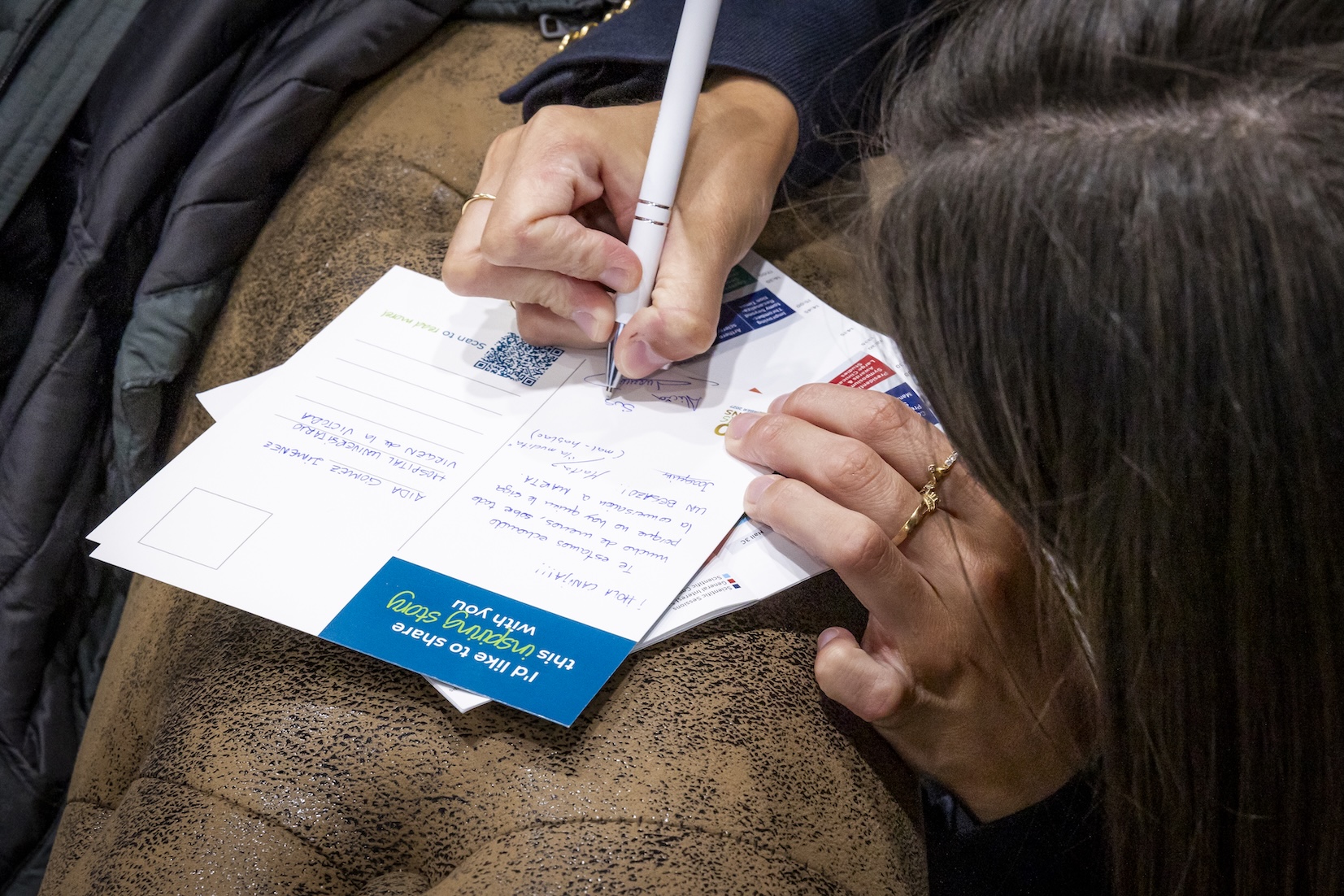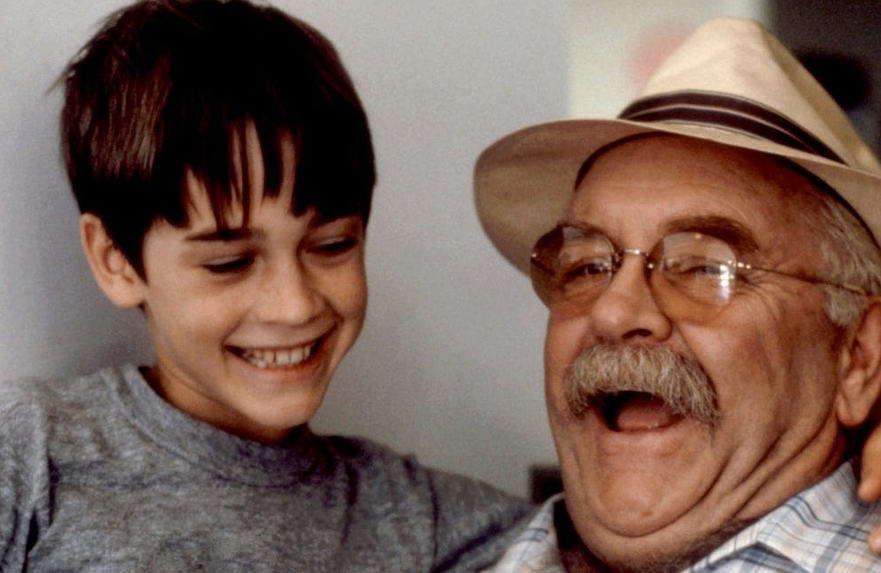O Sanatorio de los Arcos, com o seu Instituto de Neurologia, é o centro de referência designado para doentes com AVC do Swiss Medical Group na Cidade de Buenos Aires, escreve a Dra. Maia. . Mas até 2018, os seus tempos porta-a-agulha medianos estavam muito abaixo das expetativas.

Em 2018, a instituição registou um tempo porta-a-agulha médio de 119 min para tratamento com rtPA intravenoso, com apenas 8% dos doentes abaixo de 60 min e nenhum abaixo de 45 min - longe dos padrões esperados.
Em 2019, envolvemo-nos na Iniciativa Angels ao contribuir para a base de dados Res-Q. A participação no Res-Q não só facilitou a obtenção de dados sobre doentes com AVC e a qualidade de cuidados na Argentina e no mundo, como também nos ajudou a encontrar rapidamente os nossos pontos fracos para que pudéssemos continuar a formação e a melhorar. Com a ajuda da Iniciativa Angels, foram realizadas várias formações para enfermeiros, médicos de emergência e pessoal de serviço pré-hospitalar. Como resultado, conseguimos melhorar o número de doentes a receber tratamento de reperfusão e reduzir os atrasos hospitalares ao longo do tempo. Recebemos inclusivamente prémios da WSO Angels, dos quais temos muito orgulho.
No entanto, em 2020, a pandemia da Covid-19 interrompeu os circuitos que construímos. Fomos forçados a reorganizar a nossa estrutura para disponibilizar cuidados aos doentes de AVC de forma segura e rápida, especialmente após o redirecionamento de muitos recursos, particularmente recursos humanos, para o cuidado dos doentes com coronavírus. Os protocolos exigiram alterações devido às circunstâncias extraordinárias que estávamos a viver.
Durante 2020, mesmo considerando o contexto pandémico e o atraso na consulta dos doentes, houve uma redução significativa da média porta-a-agulha para 48 minutos, com 92% abaixo de 60 min e 53% abaixo de 45 minutos, e a percentagem de doentes tratados com técnicas de reperfusão para ICVA foi de 14,4%. Acreditamos que a organização pré e intra-hospitalar tem sido vital, conforme refletido na redução do tempo porta-a-agulha para o tratamento agudo.
Com o passar dos meses, os indicadores de qualidade voltaram ao normal, exceto um: rastreio da disfagia, que não conseguimos realizar atempadamente em todos os doentes. Como não conseguimos fazê-lo antes da pandemia, pensámos em introduzir formação e rastreio pelo neurologista de serviço durante a avaliação inicial. Uma vez mais, recorremos à Iniciativa Angels que, juntamente com aNutricia, no Janeiro 29, 2021, nos forneceu uma excelente formação virtual por parte de Lic. Valeria Ton, especialista em deglutição. A sua formação ajudou-nos a desenvolver um protocolo de avaliação de disfagia simples e eficaz, que rapidamente colocámos em prática. Atualmente, 100% dos nossos doentes diagnosticados com AVC ou AIT são rastreados para disfagia, para reduzir potenciais complicações no hospital, como pneumonia por aspiração.
O registo e análise de dados é crucial para encontrar as suas oportunidades de melhoria.






